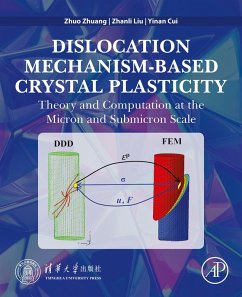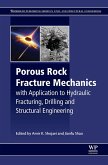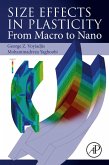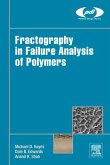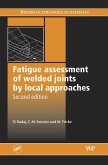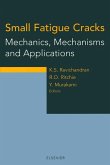Three kinds of plastic deformation mechanisms for submicron pillars are systematically presented. Further sections discuss dislocation nucleation and starvation at high strain rate and temperature effect for dislocation annihilation mechanism.
- Covers dislocation mechanism-based crystal plasticity theory and computation at the micron and submicron scale
- Presents crystal plasticity theory without size effect
- Deals with the 3D discrete-continuous (3D DCM) theoretic and computational model of crystal plasticity with 3D discrete dislocation dynamics (3D DDD) coupling finite element method (FEM)
- Includes discrete dislocation mechanism-based theory and computation at the submicron scale with single arm source, coating micropillar, lower cyclic loading pillars, and dislocation starvation at the submicron scale
Dieser Download kann aus rechtlichen Gründen nur mit Rechnungsadresse in A, B, BG, CY, CZ, D, DK, EW, E, FIN, F, GR, HR, H, IRL, I, LT, L, LR, M, NL, PL, P, R, S, SLO, SK ausgeliefert werden.

